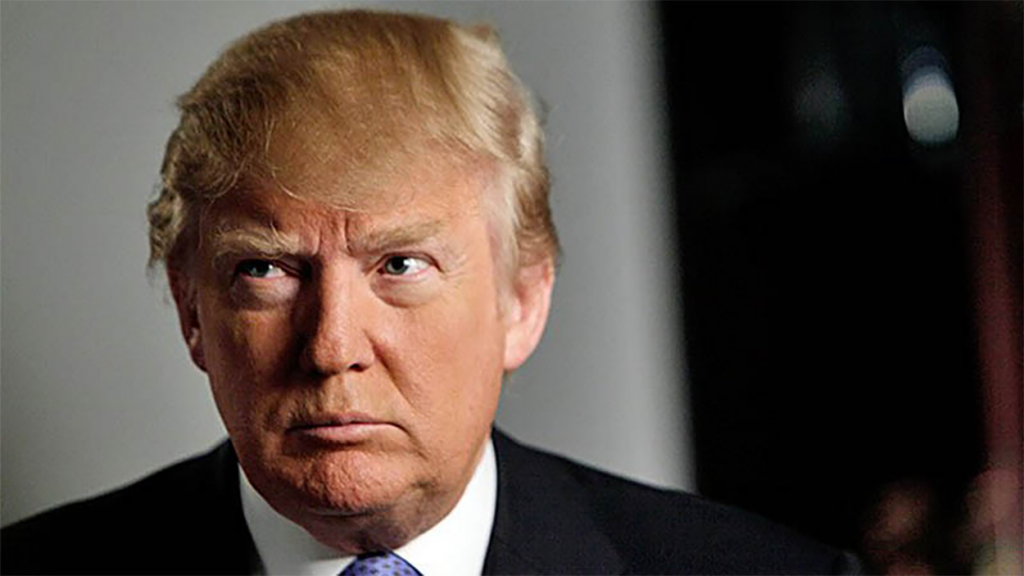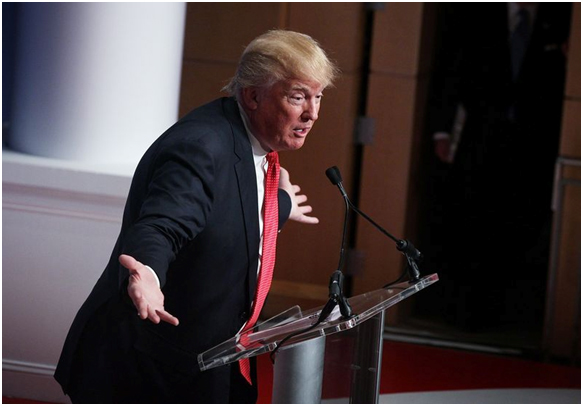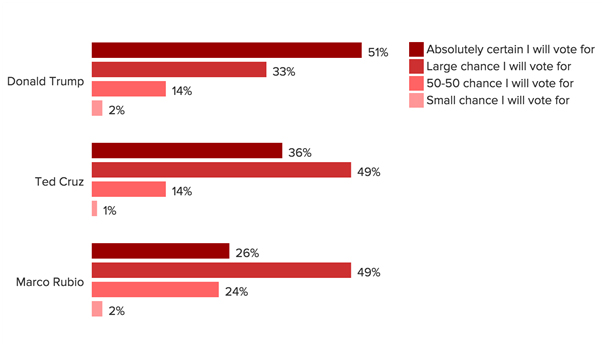
Donald Trump wants to ban Muslims from immigrating to or visiting the US. He wants to close down some American mosques and monitor the rest. He’s flirted with the idea of requiring all American Muslims to register in a database. He’s compared his policies — as a way of praising them — to the US’s widespread internment of Japanese Americans during World War II.
Donald Trump is at war with Muslims.
Trump’s attacks on Islam — and on Muslims themselves — are also internal to his campaign success. As the political establishment (and political press) has become frankly desperate to stop paying attention to him, he’s started replacing some of his anti-Latino rhetoric with anti-Muslim rhetoric to maintain the media’s attention.
This strategy succeeds for a reason: The US is witnessing the quiet rise of Islamophobia. Anti-Muslim attitudes and fears are more widespread, and more intensely felt, than they have been anytime since the immediate aftermath of 9/11 — and have possibly even gotten worse.
Trump isn’t the only candidate in the Republican presidential race whose policies would target Muslims in America and abroad. But (just like when attacking Mexican and Latino immigrants) what distinguishes Trump from his rivals is that while they downplay the racial overtones in their rhetoric, he plays them up. Thanks to Trump, the cultural anxieties that have simmered under a lot of the post-9/11 policy debate have finally punched through to the surface.
Trump’s war on Muslims is wildly popular among his followers. That’s exactly what makes it so dangerous.
Muslims have gradually replaced Latinos as the villains in Trump’s campaign narrative
Donald Trump’s campaign has been about reclaiming America for Americans, away from other people. When he launched his campaign, the “other people” were Latino (and particularly Mexican) immigrants — rapists, murderers, and other bad people who were being deliberately sent by the Mexican government to undermine America.
Trump’s anti-Latino vitriol — and the media’s outraged fascination with it — helped propel him to the top of the polls. But as summer turned to fall, Trump slowly introduced a new villain into his campaign narrative: Muslims, who were coming to the US for terrorism as surely as Latinos were coming to the US for crime.
It started with Syrian refugees. In early fall, the only thing most Americans knew about the refugee crisis was that 3-year-olds were drowning while trying to escape Syria for Europe — and many politicians were calling for the US to accept thousands more Syrians. But Trump (after briefly taking the position that the US was obligated to take in Syrian refugees because President Obama screwed up the region) started warning darkly about an ISIS coup.
“They could be ISIS. It could be a plot,” Trump told Sean Hannity in early October. “I mean, I don’t want to think in terms of conspiracy, but it could be a plot.”
“This could be the greatest Trojan horse,” he said the next week. “This could make the Trojan horse look like peanuts.”
In November, Trump began to call for particular mosques to be shut down: “There’s absolutely no choice. Some really bad things are happening, and they’re happening fast.” He flirted with the idea of requiring all Muslim Americans to register in a database — he eventually claimed that he was just talking about Syrian refugees, but only after he’d gotten a day or two of headlines out of it.
In December, in a speech to the Republican Jewish Coalition, he offset his relatively blatant anti-Semitism with an insinuation that Obama himself was a Muslim: “Our president doesn’t want to use the term […] ’radical Islamic terrorism.’ There is something wrong with him that we don’t know about.”

And on December 7 — in a written statement issued by the campaign, which prevented any possibility that Trump would claim he’d been misinterpreted or goaded into taking a position by a hostile reporter — Trump called for a ban on all Muslims entering the US “until our country’s representatives can figure out what is going on.” Trump’s campaign initially claimed that this would extend even to American Muslim citizens traveling abroad — but Trump later said that citizens would be exempt.
Trump’s statement read, in part: “It is obvious to anybody the hatred is beyond comprehension. Where this hatred comes from and why we will have to determine. Until we are able to determine and understand this problem and the dangerous threat it poses, our country cannot be the victims of horrendous attacks by people that believe only in Jihad, and have no sense of reason or respect for human life.”
Other Republican candidates have suggested policies that would have similar effects — but are more subtle in their discrimination
The Constitution guarantees the free exercise of religion for all Americans. All Trump’s anti-Muslim proposals violate the spirit of that idea.
In practice, however, at least one of Trump’s proposals — the Muslim travel and immigration ban — could well be constitutional. People living outside the US don’t have the constitutional protections US citizens have, and there’s Supreme Court precedent that would prevent the Court from going after President Trump on this. There would be a legal battle, but it might be a winnable one.
The government could certainly discriminate quietly against Muslim residents of other countries applying for a visa to come to the US. The government has a lot of leeway in evaluating immigration applications: It doesn’t have to tell someone why his or her visa (or application to immigrate permanently) was denied. So in practice, the US could probably quietly deny Muslims’ visa requests for a while.
Plenty of other Republican candidates have put out proposals that would have the effect of limiting Muslim immigration to the US without directly discriminating against Muslims. Rand Paul has called to stop accepting refugees from most Muslim-majority countries. Rick Santorum claims that his ideas to restrict both legal and unauthorized immigration would have “not the effect of banning all Muslims, but a lot of them.” Even Jeb Bush, who has condemned Trump’s remarks and whose brother urged America not to engage in Islamophobia after 9/11, suggested the US only let in Christian Syrian refugees. And pretty much the entire Republican field believes the government should stop allowing Syrian Muslims to come to the US as refugees.
Trump isn’t interested in proposing workable policies. He’s interested in attention.
Plenty of the things Trump has suggested are simply not possible, for constitutional or practical reasons. Closing mosques would be an obvious nonstarter. So would registering all Muslims in the US. And Trump’s idea of how US officials would know someone entering the country was Muslim — “a customs agent would ask, ‘Are you Muslim?'” — should indicate that he hasn’t put a ton of thought into this policy, either.
But putting forth serious policies (let alone constitutional ones) isn’t the goal of Trump’s candidacy. Saying outrageous things that offend Muslim Americans serves two important goals for Trump, as my colleague Andrew Prokop has noted.
First, by making the outrageous statement, Trump guarantees he’ll stay in the news. It’s not a coincidence that Trump’s call for a Muslim ban came the day that polls showed him slipping into second place in Iowa behind Ted Cruz. Both the political media and the political establishment have been assuming that enthusiasm for Trump will fade, and are likely to seize on any sign of waning popularity as evidence that Trump is irrelevant. But every time this seems in danger of happening, Trump finds another way to make himself impossible to ignore.
Second, by saying something so terrible that both Democrats and Republicans condemn him, Trump reinforces his reputation with his conservative supporters. Trump voters see him as the one truly independent voice in politics — beholden to neither rich donors nor political correctness. The fact that even members of his own party think what he’s saying is despicable is just more evidence that America needs Donald Trump to speak the truths no one else is willing to admit.
Donald Trump understands what motivates nativist fears in America
Trump’s truth-teller persona wouldn’t work if there weren’t a large swath of people who genuinely agree with what he’s saying. But ever since the beginning of Trump’s candidacy — when the people he was attacking were Latinos, not Muslims — Trump has understood that many Americans are deeply anxious about immigration to the US by people who do not look like them or share their culture.
This is the salient difference between Trump and his Republican competitors. On policy, Trump’s ideas for restricting immigration and increasing domestic surveillance of certain groups might not differ that much from those of other candidates. But other candidates feel the need to downplay the prejudice that might motivate some to support those policies. Trump embraces it.
Polls show Americans are surprisingly ambivalent about whether immigration is a good thing for American culture. Agreement that immigrants strengthen the US rather than burdening it keeps rising, but very gradually:
Jan 5 2016, 5:59 am ET
Poll: Donald Trump Still Leads the GOP Field
by John Lapinski, Hannah Hartig and Stephanie Psyllos
With the presidential primaries in full swing, Donald Trump maintains his sizable lead over the rest of the Republican field. Among Republican or Republican-leaning registered voters, Trump has 35% support compared to 18% for Ted Cruz and 13% for Marco Rubio, according to results from the latest NBC News|SurveyMonkey Weekly Election Tracking Poll for the week of December 28, 2015 through January 3, 2016. The poll was conducted online among a national sample of 3,700 adults aged 18 and over.
Donald Trump leads by 17 points as he amps up attacks 2:43
Trump leads among men with 39% of support, compared to 21% of men who support Cruz and 13% of men who support Rubio. Trump also leads among women with 29% support, while Cruz and Rubio have about equal support from women—13% and 14%, respectively.
Perhaps surprisingly, Trump also has the highest support among white evangelical voters—33%. Although Ben Carson did fairly well among white evangelicals (12%), the group heavily favored Trump. Cruz also did well with white evangelicals, with 2 in 10 supporting him. Rubio’s support among this group was 1 in 10. Republican-leaned voters who describe their political views as “very conservative” are most likely to support Trump (35%) and Cruz (30%) with the other candidates at least 20 points behind.
A big question in the election is whether Trump supporters will change their minds. Our results show that half of Trump voters (51%) say they are absolutely certain they will vote for him. Another 3 in 10 Trump supporters say there is a large chance they will vote for him. Cruz and Rubio supporters, however, are not as certain that they will vote for their candidate. Just under half (49%) of both candidates’ supporters say there is a large chance they will vote for their candidate but they are not absolutely certain.

The NBC News|SurveyMonkey weekly election tracking poll was conducted online by SurveyMonkey from December 28, 2015-January 3, 2016 among a national sample of 3,700 adults aged 18 and over, including 3,181 who say they are registered to vote. Respondents for this survey were selected from the nearly three million people who take surveys on the SurveyMonkey platform each day. A full description of their methodology and the poll can be found here.
The poll was produced by the Data Analytics Lab of NBC News in conjunction with Penn’s Program on Opinion Research and Election Studies with data collection and tabulation conducted by SurveyMonkey.



